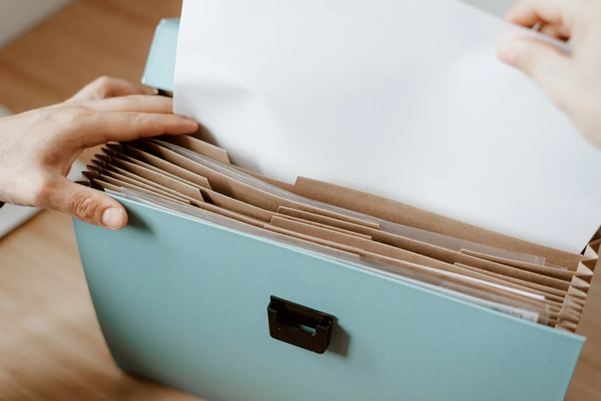Probate solicitor assistance can provide both legal guidance and emotional support during the process of estate administration. That’s why it’s wise to speak to a trusted probate solicitor early—so you can approach decluttering with a mindful strategy that honours memories while streamlining practical logistics.
In this article, we explore how mindful decluttering during probate can help executors and families navigate emotional terrain while preparing assets efficiently. Read on for seven key strategies every estate should consider.
Tips for Decluttering During Probate Proceedings
1. Acknowledge the Emotional Journey
Decluttering after bereavement is more emotional than practical. People often feel overwhelmed by the sentimental weight of personal items. Recognising this allows families to create space for memories—rather than rushing into clearance—and avoid burnout.
Tip: Designate a day for sharing stories about cherished items, helping reduce guilt later and enabling productive progress.
2. Start with a Family Conversation
Involving relatives early on prevents misunderstandings later. Having open discussions about items’ significance and future destinations reduces conflict and boosts emotional clarity.
Tip: Frame your conversation around the question, “What would they want us to do with this?” This keeps focus on intention, not obligation.
3. Create Intentional Categories
Breaking down decisions makes the process transparent. Use three simple categories:
- Keep – Sentimental or legally important items
- Donate or Gift – Useful items for others
- Recycle or Discard – Damaged or unneeded objects
Tip: treat the decluttering process like preserving history—by selecting a few items that “symbolise the person’s life and legacy.”
4. Prioritise Health and Safety
Older properties often hide unseen hazards—dust, mould, or deterioration. It’s advised to wear protective gloves, ensuring proper ventilation, and clearing floor routes before moving items.
Tip: Tackling small patches at a time keeps the process safe and more emotionally manageable.
5. Donate with Dignity
Passing on meaningful household items is a positive tribute. Charities like the British Heart Foundation will collect gently-used furniture and clothing—transforming legacy into value for others.
Tip: Clearly label donations “probate clearance” to ensure transparency and ease of collection.
6. Preserve Digital Keepsakes
Today’s memories aren’t just physical—photos, videos, letters may be digital. Scan and upload files to secure platforms to ensure emotional heirlooms are not lost—even if the physical items are cleared.
Tip: Use cloud-based photo albums shared with family members to preserve stories without retaining physical space.
7. Time Your Decluttering Carefully
Timing is essential; avoid clearance until after the funeral, probate applications, and any insurance changes have been completed—so you don’t disrupt legal processes or sentimental rituals.
Tip: Agree on a realistic schedule with family—e.g., “We’ll clear the house three weeks after probate is granted,” to balance emotion with progress.
8. Consider Charity Auctions or Sales
Instead of disposing of items, estate sales or charity auctions can raise funds and honour legacies.
Tip: Executors should document all sales to ensure compliance with probate accounting and inheritance rules.
9. Responsible Recycling and Disposal
For items beyond reuse, recycling is crucial. Recycle Now provides guidance on how to sort electronics, textiles, and furniture responsibly—helping reduce landfill impact.
Tip: Retain disposal receipts if large-scale clearance is involved, as this can be useful for probate accounting and transparency.
10. Engage Your Probate Solicitor
Decluttering is more than a physical task—it may involve significant legal and logistical responsibilities for executors. A proficient probate solicitor can:
- Provide checklists that align with legal requirements
- Advise on the correct inheritance protocols
- Offer referrals for specialised clearance services
When in doubt, defer to your probate solicitor to preserve both sentiment and compliance.
Checklist: Mindful Probate Decluttering
| Step | Action |
| 1 | Family sharing day to acknowledge legacy |
| 2 | Category creation (keep, donate, discard) |
| 3 | Health & safety compliance check |
| 4 | Donation or sale arrangements |
| 5 | Digital scanning of photos/documents |
| 6 | Schedule clearance post-probate |
| 7 | Executor documentation for audits |
Reflections on Decluttering
Mindful probate decluttering isn’t about rushing or forgetting—it’s about balancing legacy and logistics. By acknowledging grief, categorising clearly, donating with meaning, and preserving digital memories, you honour your loved one while ensuring the estate is prepared correctly.
If you’d like personalised guidance or need support structuring your decluttering or probate process, feel free to connect with our experienced probate solicitor. We’re here to walk alongside you—offering legal clarity, compassion, and structured support during this sensitive time.
This article provides general guidance on managing probate-related decluttering and does not constitute legal, financial, or health advice. Executors and families should consult qualified probate solicitors, estate agents, or medical advisors where appropriate.

